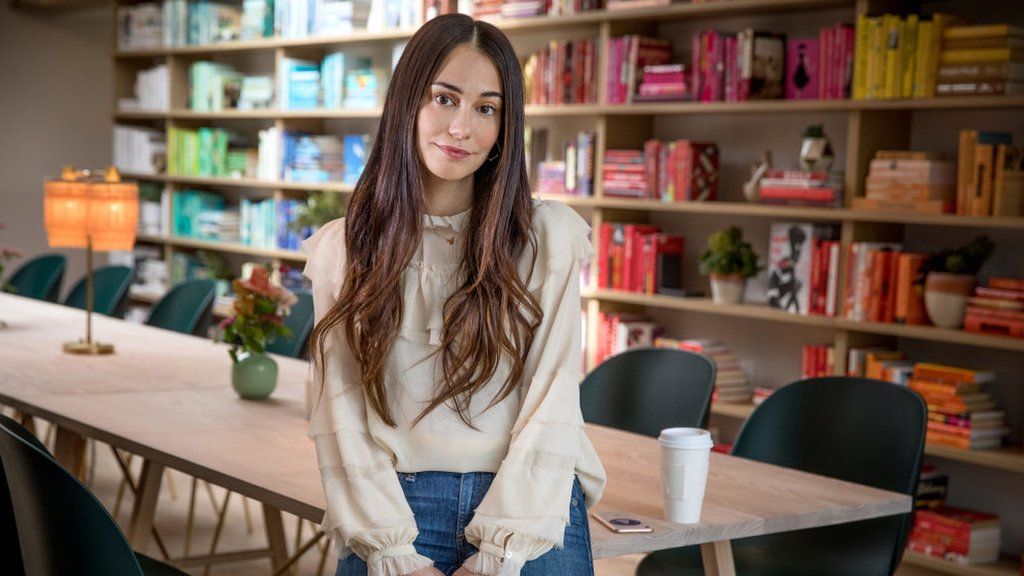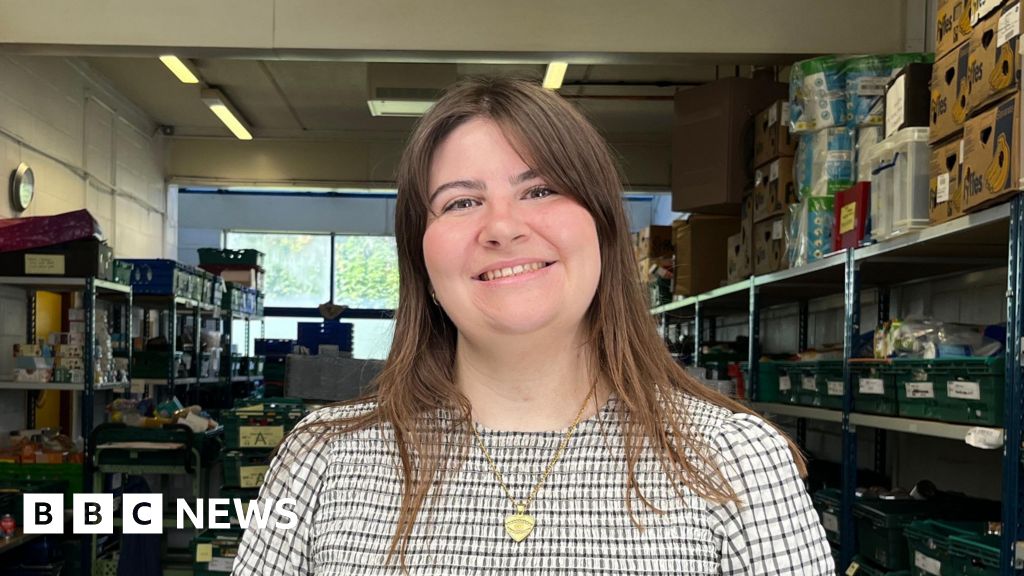ARTICLE AD BOX
 Image source, The Washington Post
Image source, The Washington Post
Audrey Gelman founded The Wing in New York as a women's co-working space in 2016
By Dougal Shaw
Business reporter, BBC News
Women-only business networking and co-working clubs like Chief in London and The Co-Working Space in Nottingham have recently closed their doors. The concept gained a lot of traction around the height of the MeToo movement. Some women find the idea a step backwards, but for others these clubs are a way to level the playing field.
The idea of men-only "gentlemen's clubs" is well established, with centuries-old places like White's and The Garrick Club in London.
But women-only ones have been on the rise too over the past decade, often with a twist - they focus on the idea of co-working.
Co-working spaces are big, open-plan offices with hot desks and nice amenities where people can come and work on a membership basis. They have grown in popularity as remote working has become easier.
Women-only co-working spaces hit the headlines about eight years ago thanks to The Wing in the US. It was founded in New York by Audrey Gelman, former press secretary to Hillary Clinton, against the backdrop of the MeToo movement and Donald Trump's rise to power. It raised millions in funding, with a promise of female empowerment.
But then it suffered a spectacular fall during the pandemic. There was a staff revolt, with allegations of mistreatment and racism. Its pricing model led to accusations of social exclusivity. It was also hit by legal challenges for sexual discrimination over its core women-only membership policy.
The self-proclaimed "female utopia" abruptly closed all of its spaces in the summer of 2022, including a branch in London.
Despite the demise of The Wing, other women-only co-working spaces are still operating. There are about 50 in Europe, including several in the UK. One such place is The Hearth, in north London.
Oi Leng Lei founded co-working space The Hearth in north London
Bonnie Lister Parsons, founder of SOS Dance Global, a digital platform that teaches women how to dance, is a regular. So why is she a member? It's been challenging growing her business as a woman, she explains, as only about 2% of venture capital funding goes to female-led companies. "When you are operating in a world with a lot of headwinds, being in an all-female space is refreshing - and joyful," she says.
She also says she wasn't impressed by her tour of the co-working space WeWork, where they were keen to boast about the free beer on tap: "For the guy showing me round it was a massive selling point. I know not all women dislike beer, but personally, I couldn't care less."
Audrey Gelman, founder of The Wing, used to argue that rival co-working spaces had "pumps for beer, but not for breast milk".
The Hearth is designed to feel like "your dream home", according to its founder Oi Leng Lei. The walls and furnishings are relaxing, pastel colours and an aromatic smell is pumped into the space where women hot desk. There is even a wellness room.
Susie Campbell, a business adviser and coach, is another regular.
"I used to work in the City for many years - a very male-dominated environment," she explains. "The air conditioning was always down too low... there's something just really safe here and a sense of community."
There are a handful of other women-only co-working spaces in the UK, including Egg in Edinburgh and Maven in Winchester, a former bridal shop which the owner decided to convert.
Image source, Boston Globe
Image caption,A terrace at The Wing's Boston branch in 2019
Zoe Ellis-Moore is the founder of Spaces to Places, which advises companies on how to find the best flexible office space.
Women-only co-working spaces should be seen as part of a wider trend of people wanting to work flexibly in "tribes", she says.
"We've seen a huge growth in these niche areas," she says, "like spaces for tech start-ups or flexible catering spaces for hospitality companies."
Start-ups and freelancers want to work flexibly, but with a community of like-minded people, she points out, and women-only spaces represent a tribe, just like these.
Gender discrimination
In 2017, the New York City Commission on Human Rights launched an investigation into The Wing over the issue of gender discrimination and the following year, a man filed a lawsuit against The Wing in Washington DC after he was refused admission.
The Wing adapted its membership rules to say that anyone could join, as long as they were committed to its mission of supporting women.
Other women-only spaces in the US followed suit.
The Coven in Minnesota started in 2018 as a women-only space after a successful crowdfunding campaign and now has four spaces. It has 1,000 members but men now make up about 20% of that figure.
"We were hearing from members that they wanted to invite more of their male friends into the space," says Erin Farrell, co-founder of The Coven, "which led us to think, when we talk about physical and psychological safety, how tied to gender is that?"
Ms Farrell says they were aware of the legal challenges that The Wing was facing, but their own language never excluded men, it was always just women-focused, so accepting men was not a significant issue.
Those that choose to join tend to be "allies and accomplices", she adds, and the clubs' amenities and programme of events remain women-focused.
Image source, The Coven
Image caption,The Coven in Minnesota was founded as women-only but went on to admit men
So where does this leave women-only spaces in the UK?
"Equality legislation in the UK [enshrined in the Equality Act] generally protects against discrimination based on gender in the supply of services," according to Sarah Evans, partner at Constantine Law, which specialises in employment and discrimination law, "but there are exceptions, including for associations, groups and private clubs."
"Criteria apply, but women-only co-working groups, with the aim of supporting and facilitating women doing business together, are highly unlikely to fall foul of anti-discrimination laws," she says.
A step back?
The other pressing question is, are these spaces empowering women in the long term? Some workplace experts are not convinced.
"While women-only spaces can provide temporary relief from conflict, judgement, assumptions, and distractions," says Blaire Palmer, leadership consultant and author of Punks in Suits, "it is vital that we all learn how to challenge each other and develop the skills to bring our unique perspective to our work.
"Women-only spaces are useful for exploring, in a safer environment, the challenges of being a woman in what is still not a level playing field, but they should never become a place to hide permanently."
However, others think that women-only work clubs are counterproductive.
"Women-only co-working spaces are a step backwards," according to Anne Kirby, who set up The Candy Factory co-working space in Pennsylvania.
"Yes, women have unique challenges and are at a disadvantage in the business world, but how does removing yourself from real life get you anywhere? How can we expect men to understand the need for respect and equality if we subtract them from our daily work lives?
"We're working to disrupt the 'good ol' boys club' mentality; why create the same thing for women?"
The Hearth, like other women's co-working spaces, hosts regular talks with a programme designed to appeal to women
Back downstairs at The Hearth, a lunch-and-learn workshop is taking place. The women who were working away on their laptops are now sitting in a square listening to a talk by Elena Megan, a self-discovery and mindset coach.
An audience member shares a story that perhaps explains the attraction of a women-only co-working space like this for some. She says she has always struggled to network with men because she feels they do not treat her like an equal professional.
The other members nod and murmur in agreement.

 1 year ago
53
1 year ago
53








 English (US) ·
English (US) ·